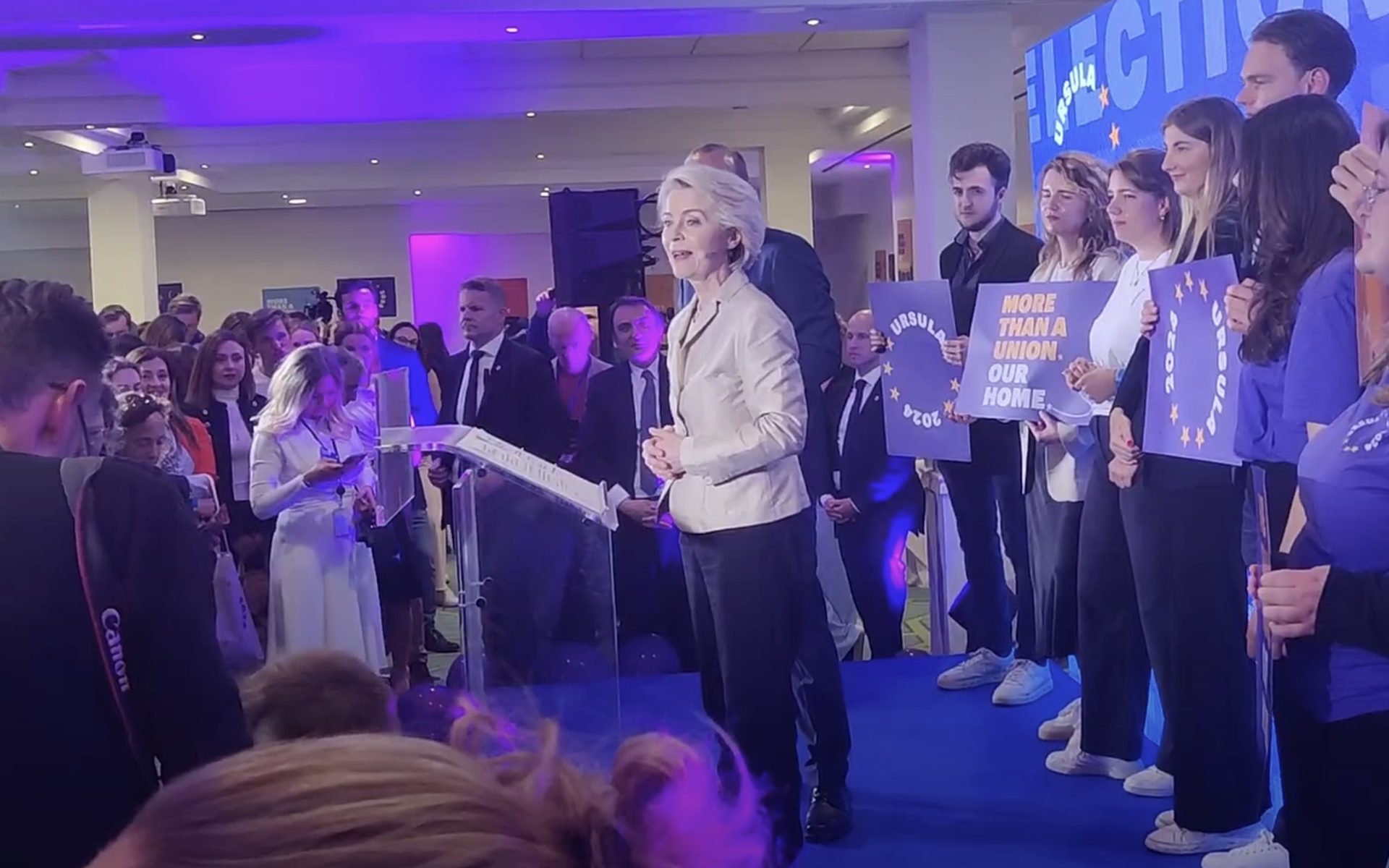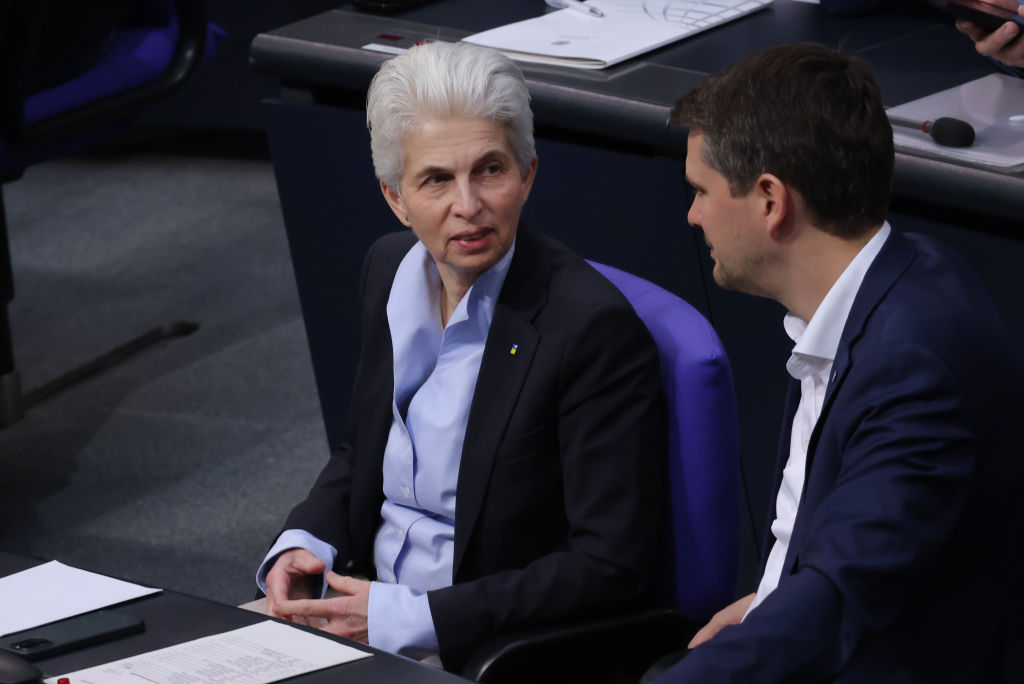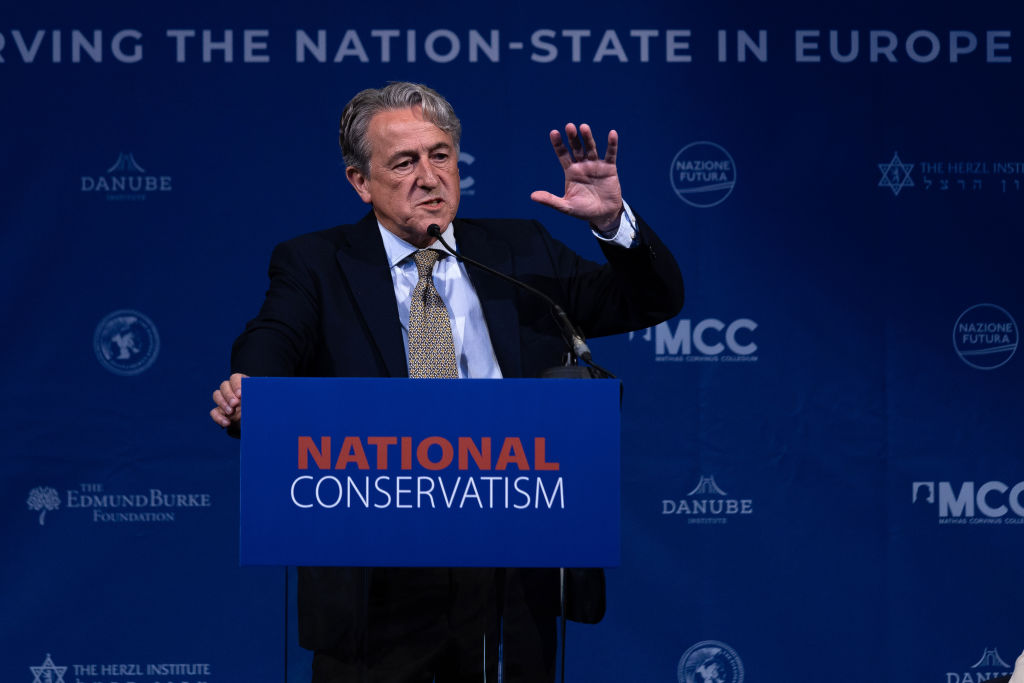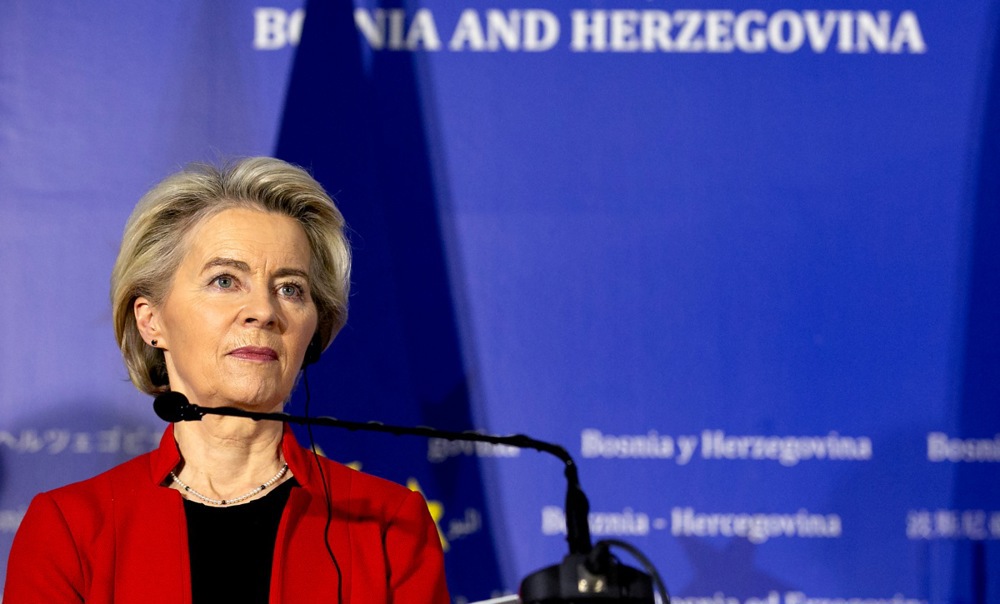European Commission President Ursula von der Leyen’s search for a second term is now reliant on her gaining the support of her former political enemies.
Despite her post-election boast that the European Parliament’s centre had “held”, sources say the cumulative total of more than 400 ‘centrist’ MEPs is unlikely to be enough to get her reappointed.
The German politician’s two-faced politics, which has involved flirting with both the Right and the Greens, has rendered her unpopular within her own European People’s Party, as well as its allied groups, the Socialists and Democrats (S&D) and Renew, with numerous representatives within these groups having vowed not to support her return to power.
To this end, pundits believe the leader will seek support for re-appointment from one of two political groups: the right-wing European Conservatives and Reformists, or the Greens–European Free Alliance.
According to one source within the EPP, von der Leyen is more likely to go with ECR than the environmentalists due to the former having drifted closer to her own brand of politics.
“In the end she might need the [ECR’s] votes, if she doesn’t get full backing from the EPP, Renew and S&D groups,” they said.
“She can either look to the Greens, who are unlikely to support her if she puts the brakes on the Green Deal in any way.
“Or look to [Italian Prime Minister Giorgia] Meloni and the ECR, and I think this will be the more likely since EPP has been leaning more towards a more reasonable approach to the green deal.”
The source claimed that the EPP had been gravitating towards some form of co-operation with the ECR for some time now, though they added that they did not expect any formal coalition to be established.
He added that, for the EPP, “getting support in a vote for von der Leyen is still something different than forming a coalition with ECR”.
They went on to note that such an option may be made less viable should the Conservatives end up working with right-wing leaders such as Hungary’s Viktor Orbán.
“I think almost certainly the EPP will work more with the forces on the Right when it comes to other issues as well, for example migration, because the EPP position aligns much more with that of the right-wing parties than on the Left, even is there is no EPP and ECR coalition,” they concluded.
Such an alliance would not be without consequences.
SD officials have already warned that they could not support von der Leyen if she turned to ECR for support.
The Greens meanwhile are said to be conditioning their support of the EC President on her promising not to touch the EU’s Green Deal, an unattractive prospect considering the project appears likely to wreak havoc on both the German and European economies if not adjusted in light of the war in Ukraine.
Members of von der Leyen’s own Christian Democrats have attempted revolts before against the legislation, with such revolutions being spearheaded by in-party rival Manfred Weber.
Any promise to continue pursuing the deal would likely further damage her standing, both in Germany and the EPP as a whole, meaning that any such alliance with the Greens could be counterproductive.
Meanwhile, sources within ECR are saying that, if von der Leyen fails to come to a deal with them, the creation of a much-rumoured ID-ECR “supergroup” would become more likely.
Initially floated by National Rally leader Marine Le Pen, the proposal has received mixed responses from ECR kingmaker Giorgia Meloni, who appears to be trying to keep her parliamentary group available for a more fruitful alliance with the EPP.
One EP official within the ECR told Brussels Signal that if this deal falls through, Meloni “will have no problem in joining an alliance with Marine Le Pen and Viktor Orbán”.
Additional reporting by Javier Villamor.
Commission President Ursula von der Leyen has suggested that the EU’s so-called Grand Coalition will survive for another five years following her European People’s Party (EPP) election win on June 9. https://t.co/PTD3Ewo7J4
— Brussels Signal (@brusselssignal) June 10, 2024





